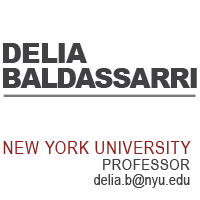CLICK HERE TO RETURN TO ARTICLES
D. Baldassarri and A. Goldberg 2014 “Neither Ideologues, nor Agnostics: Alternative Voters’ Belief System in an Age of Partisan Politics,” American Journal of Sociology 120(1): 45-95.
Abstract: How do Americans understand politics? This paper argues that party polarization and the growing prominence of moral issues in recent decades have catalyzed different responses by different groups of Americans. The paper investigates systematic heterogeneity in the organization of political attitudes using Relational Class Analysis, a graph-based method for detecting multiple patterns of opinion in survey data. Three subpopulations, each characterized by a distinctive way of understanding politics, are identified: Ideologues, whose political attitudes strongly align with either liberal or conservative categories; Alternatives, who are instead morally conservative but economically liberal, or vice versa; and Agnostics, who exhibit weak associations between political beliefs. Individuals’ sociodemographic profiles, particularly their income, education, and religiosity, lie at the core of the different ways in which they understand politics.
Results show that while Ideologues have gone through a process of issue alignment, Alternatives have grown increasingly apart from the political agendas of both parties. The conflictual presence of conservative and liberal preferences has often been resolved by Alternative voters in favor of the Republican Party.

